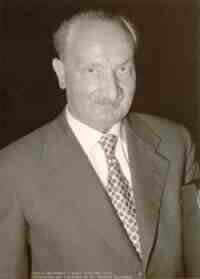 Martin Heidegger (September 26, 1889 – May 26, 1976) was an influential German philosopher. His best known book, Being and Time (German: Sein und Zeit, 1927), is generally considered to be one of the key philosophical works of the 20th century.
Martin Heidegger (September 26, 1889 – May 26, 1976) was an influential German philosopher. His best known book, Being and Time (German: Sein und Zeit, 1927), is generally considered to be one of the key philosophical works of the 20th century.Heidegger claimed that Western philosophy has, since Plato, misunderstood what it means for something to be, tending to approach this question in terms of a being, rather than asking about being itself. In other words, Heidegger believed all investigations of being have historically focused on particular entities and their properties, or have treated being itself as an entity, or substance, with properties. A more authentic analytic of being would, for Heidegger, investigate "that on the basis of which beings are already understood," or that which underlies all particular entities and allows them to show up as entities in the first place.
But since philosophers and scientists have overlooked the more basic, pre-theoretical ways of being from which their theories derive, and since they have incorrectly applied those theories universally, they have confused our understanding of being and human existence. To avoid these deep-rooted misconceptions, Heidegger believed philosophical inquiry must be conducted in a new way, through a process of retracing the steps of the history of philosophy.
More...


No comments:
Post a Comment